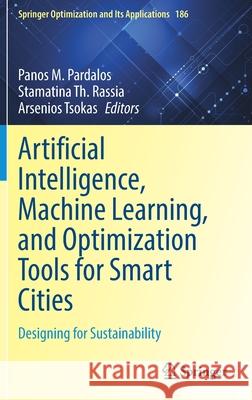Artificial Intelligence, Machine Learning, and Optimization Tools for Smart Cities: Designing for Sustainability » książka
topmenu
Artificial Intelligence, Machine Learning, and Optimization Tools for Smart Cities: Designing for Sustainability
ISBN-13: 9783030844585 / Angielski / Twarda / 2022 / 280 str.
Artificial Intelligence, Machine Learning, and Optimization Tools for Smart Cities: Designing for Sustainability
ISBN-13: 9783030844585 / Angielski / Twarda / 2022 / 280 str.
cena 563,56
(netto: 536,72 VAT: 5%)
Najniższa cena z 30 dni: 501,19
(netto: 536,72 VAT: 5%)
Najniższa cena z 30 dni: 501,19
Termin realizacji zamówienia:
ok. 16-18 dni roboczych.
ok. 16-18 dni roboczych.
Darmowa dostawa!
Kategorie:
Kategorie BISAC:
Wydawca:
Springer
Seria wydawnicza:
Język:
Angielski
ISBN-13:
9783030844585
Rok wydania:
2022
Wydanie:
2021
Numer serii:
000331107
Ilość stron:
280
Waga:
0.51 kg
Wymiary:
23.39 x 15.6 x 1.42
Oprawa:
Twarda
Wolumenów:
01
Dodatkowe informacje:
Wydanie ilustrowane











